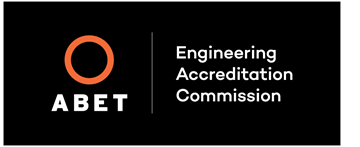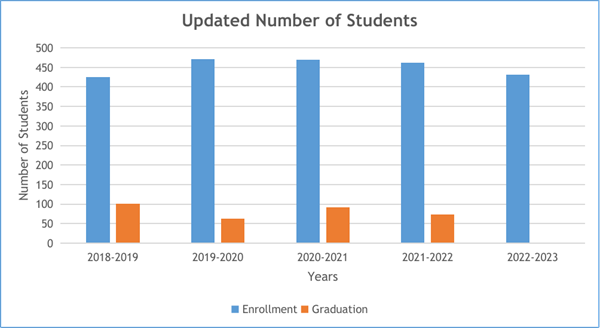
ITU Aeronautical Engineering Undergraduate Program is accredited by the Engineering Accreditation Commission (EAC) of ABET, https://www.abet.org, (Criteria: Aeronautical Engineering). See our ABET Accreditation page for more information.
Related links:
Program ABET Coordinator
Asst. Prof. Oğuzcan İNAL
Phone: +90 212 285 3101/170
E-mail: oinal@itu.edu.tr
Mission of ITU Aeronautical Engineering Undergraduate Program
The mission of the Aeronautical Engineering Department is as follows.
PEOs - Program Educational Objectives
The educational objectives of the Aeronautical Engineering undergraduate program are for its graduates to achieve the following career and professional accomplishments in Aeronautical Engineering and related engineering and scientific fields are:
- To be successfully employed and to serve their profession locally, nationally and/or internationally in organizations and/or in graduate programs (1st PEO)
- To continue their professional development through life-long learning experiences using appropriate learning strategies (2nd PEO)
- To become successful and practical engineers who develop meaningful solutions individually and/or contribute as team members for the challenging problems in Aeronautical Engineering and related engineering and scientific fields or to serve as leading, outstanding academics who carry out interdisciplinary studies for education and for producing new knowledge (3rd PEO)
Industrial Board Members and Employers Survey: https://docs.google.com/forms/d/1XmXWPD0UA3giC4AUHzIlGp-41EF2ZohJdag5D7hUYLk
Faculty Members Survey: https://docs.google.com/forms/d/15j09xfXW5v-C9jASRIMEmOcMZaYehFPWYenPOK4w1lI
Alumni Survey: https://docs.google.com/forms/d/1XnpekP4kAoz16NrmXi6fb6vl7CBQlBC1rvaWkQjAIQg
SOs – Student Outcomes (1 to 7)
- An ability to identify, formulate, and solve complex engineering problems by applying principles of engineering, science, and mathematics.
- An ability to apply engineering design to produce solutions that meet specified needs with consideration of public health, safety, and welfare, as well as global, cultural, social, environmental, and economic factors.
- An ability to communicate effectively with a range of audiences.
- An ability to recognize ethical and professional responsibilities in engineering situations and make informed judgments, which must consider the impact of engineering solutions in global, economic, environmental, and societal contexts.
- An ability to function effectively on a team whose members together provide leadership, create a collaborative and inclusive environment, establish goals, plan tasks, and meet objectives.
- An ability to develop and conduct appropriate experimentation, analyze and interpret data, and use engineering judgment to draw conclusions.
-
An ability to acquire and apply new knowledge as needed, using appropriate learning strategies.
E&G - Enrollment and Graduation Data
UPDATED: Enrollment and Graduation Data (2018-2023)
| Years |
Enrollment |
Graduation |
| 2018-2019 |
426 |
101 |
| 2019-2020 |
471 |
62 |
| 2020-2021 |
470 |
92 |
| 2021-2022 |
462 |
74 |
